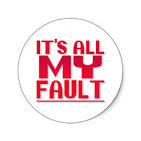
Recently someone asked me why I hate capitalism. I don’t. I do hate greed (and I wish I could — with accuracy — use a less violent verb).
There’s nothing wrong with an honest living. We all deserve a home — shelter — food, clothing, and medical care. An education. Skill sets. Independence, in other words. And that requires an income.
Today I read a review on one of my favourite websites, brainpickings.org. It’s a GREAT site, in case you aren’t familiar with it: running reviews of current, classic, even antiquated books and other media that are thought-provoking in the best sense of the term.
The review I read I’ve been saving, as the title spoke to me: Buddhist Economics. And yup — there was my old friend right livelihood. It’s the sticky wicket for a lot of my non-Buddhist acquaintances (even, I’m sure, some friends & family). It’s the principle underlying my refusal to buy Chick-Fil-A, or shop at WalMArt. Their practices hurt people. Attack people I love. So to encourage that ongoing harm with my $$ is, at least according to my interpretation of right livelihood, to participate in the harm.
Here’s the thoughtful Thích Nhất Hạnh on right livelihood:
Right Livelihood is a collective matter. The livelihood of each person affects all of us, and vice versa. The butcher’s children may benefit from my teaching, while my children, because they eat meat, share some responsibility for the butcher’s livelihood of killing.
In other words? It’s not only what we do for our own ‘job,’ but whom we support — whom we buy from, pay to, watch, vote for — as well. With our actions, our $$, our attentions. So for me, right livelihood is one of the anchor threads of the Buddhist ‘web.’ You believe in the Buddha’s teachings, sure. And you try to live your life according to them. Which brings you smack uppaside of right livelihood. 🙂 
Now here’s the deal: I like my work. I ADORE teaching. That doesn’t mean, however, that I don’t need to pay my bills. Feed myself, any family I have. So I am NOT saying that Buddhists should accept crap wages because we’re ‘above’ all that. As the review quotes E.F. Schumacher arguing, it’s not wealth itself that’s the problem. It’s the craving for wealth, the attachment to what it buys.
This is pretty obvious when you look at American business today (and we return, circuitously, to the accusation that I hate capitalism): there is never enough profit for some folks. Workers are let go, other workers required to do more, vacations and benefits cut, and entire companies gutted by the desire for more. Desire, attachment, greed — it’s all taṇhā, translated as ‘thirst, desire, craving.’ The hunger for more.
That’s sooo not Buddhist economics. Yes, I need to make a living. And if I’m verrry good at what I do, it’s fine if you pay me lots. In fact, I would LOVE that! 🙂 But it’s NOT fine if I make a living by hurting anyone else, because I thirst, or hunger, or just plain WANT more stuff. More Benjamins. A bigger, faster car. Whatever. That’s not okay.
So it’s not capitalism. It’s not even capitalists. It’s greed, and inhumanity that set me off. Because those are NOT ‘good business,’ despite what the Koch brothers would like us to believe. They’re very bad Buddhism. And I’m NOT okay with that.

